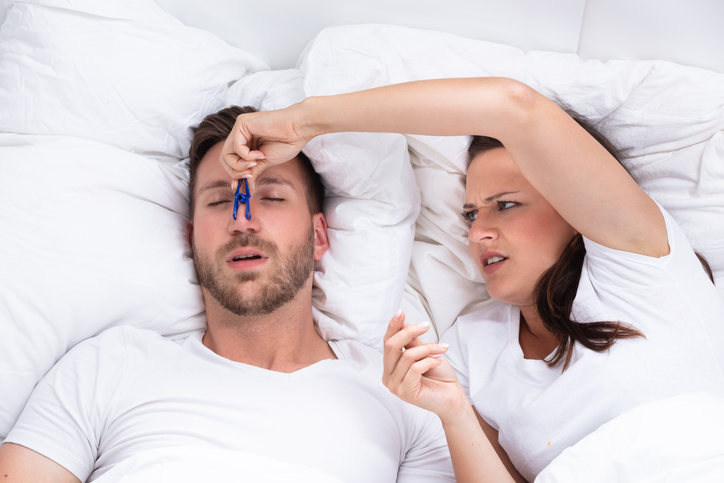Getting treatment for sleep apnea is always a good idea. Like when you have a medical condition, you may wish to get a solution as soon as possible. Apart from getting medication quickly, you need the proper medication or solution to deal with your condition effectively. Sleep Apnea is one of those conditions that may give you sleepless nights making you wonder how you can deal with it.
Unfortunately, only some people know the conditions, signs and symptoms, causes, and how to proceed. Sleep apnea is a sleeping disorder characterized by breathing difficulties where a patient experiences stops and starts when breathing. This happens mainly during the night when sleeping. Patients may only realize they have the condition if someone else tells them. You should be worried if you wake up in the morning and still feel tired even after sleeping all night. Fortunately, treatment for sleep apnea is possible.
Main Types of Sleep Apnea
There are three main types of sleep apnea, and they include;
- Central sleep apnea (CSA): This type of apnea occurs when signals from the brain are not correctly generated to the muscles, especially those responsible for breathing.
- Obstructive sleep apnea (OSA): This is the most common type of sleep apnea because it affects most people with the condition. It occurs when airflow is blocked from getting into the lungs by muscles relaxing.
- Treatment-emergent central sleep apnea: This is also called complex sleep apnea because of how it behaves. This condition develops as OSA but changes to CSA when receiving medication
Signs and Symptoms of Sleep Apnea
Signs and symptoms of sleep apnea are easy to identify. However, it is relatively difficult to distinguish between the signs of CSA and OSA because they overlap. Common symptoms that are common in the two conditions include;
Loud Snoring
Snoring is a common thing for some people when they are sleeping. However, loud snoring can be a sign of a medical complication. One of those conditions is sleep apnea. Unfortunately, it is relatively difficult to notice when you have loud snores. The best way is if someone else tells you about it. When that happens, ask the person to record next when it happens to help a doctor determine the condition if possible.
Awakening With a Dry Mouth
Sometimes you wake up with a dry mouth and wonder what the problem might be. When that happens, you should be worried about the problem because it might be sleep apnea. Because many conditions can lead to drying of the mouth in the morning, talk to your doctor to determine what the problem might be.
Morning Headache
Headache happens in the morning when you fail to have a good night’s sleep. Otherwise, it is rare to have morning headaches immediately after you wake up. Failing to have a good sleep can be a result of many things, and one of them is sleep apnea. As discussed above, these conditions cause you to have difficulties when breathing. This means that you struggle throughout the night, something that causes headaches.
Causes of Sleep Apnea
Sleep apnea can be a result of many things. The condition mentioned above happens when you have problems with your breathing system, especially when air passes to the lungs. Since there are three types of this condition, each of them is a result of unique reasons. For example, obstructive sleep apnea is caused by relaxing the back muscles in the throat. Once the muscles relax, the airway narrows, allowing limited air supply. Since you cannot receive enough air, your blood lacks enough oxygen in the brain.
Central sleep apnea, which is not as common as OSA, is caused when the brain sends wrong signals or fails to send signals to muscles involved in breathing. Because of that, you may need help falling asleep or getting up properly.
Risk Factors Associated With Sleep Apnea
Sleep apnea is not selective to who it catches. It can affect anyone ranging from older adults to children. However, research shows that there are factors that may increase the risks. For example;
Excess Weight
Excess weight is associated with many medical conditions, and sleep apnea is one of them. When you have excess weight, your body organs fail to function as they should. This ends up exposing you to many health problems. Excess weight is defined as a weight not relative to your height. There are many methods to regulate your weight; the best is through regular exercise. Watching your diet is another way that can help you regulate your weight.
Family History
This condition is hereditary and can move from one generation to another. If your family has had this condition in the past, there are chances that you may suffer from the same condition. The best part is that rare cases have been reported as a result of hereditary factors.
Smoking
People who smoke are more likely to suffer from these conditions. Research shows that regular smokers are likely to suffer from this condition. This is so because smoking increases fluid retention and inflammation in the upper airway.
Neck Circumference
This is the distance around your neck. Since we are all unique, there are people with thicker necks and those with narrower ones. Those with thicker necks are more likely to suffer from sleep apnea because they have narrow airways. Thicker necks may also result from the meals you take or failure to engage in regular exercises.
When Should You See a Doctor?
It is essential that you see a doctor immediately if you notice signs associated with sleep apnea. Even when unsure, let a doctor understand what you are going through. Doctors are in a good position to determine what your problem might be.
In some occasions, sleep apnea may not be a condition affecting. Even in such a case, let the doctor know about the other problem. So visit the nearest hospital when you have signs that are not normal. A doctor may prescribe sleep apnea surgery to deal with the condition or any other way.
Final Thoughts on Treatment For Sleep Apnea
Treatment for sleep apnea is possible when you realize the conditions early enough. Like most conditions, this condition needs effective treatment, depending on the stage. When at an advanced stage, a doctor may recommend sleep apnea surgery. At MR specialists, we are the best in dealing with these conditions. They can advise on what to do and also offer surgery when necessary. Having handled many clients with this condition, we stand a good chance to help you too. Contact us today at (310) 360 9520. We also advise you to book earlier for convenience.

